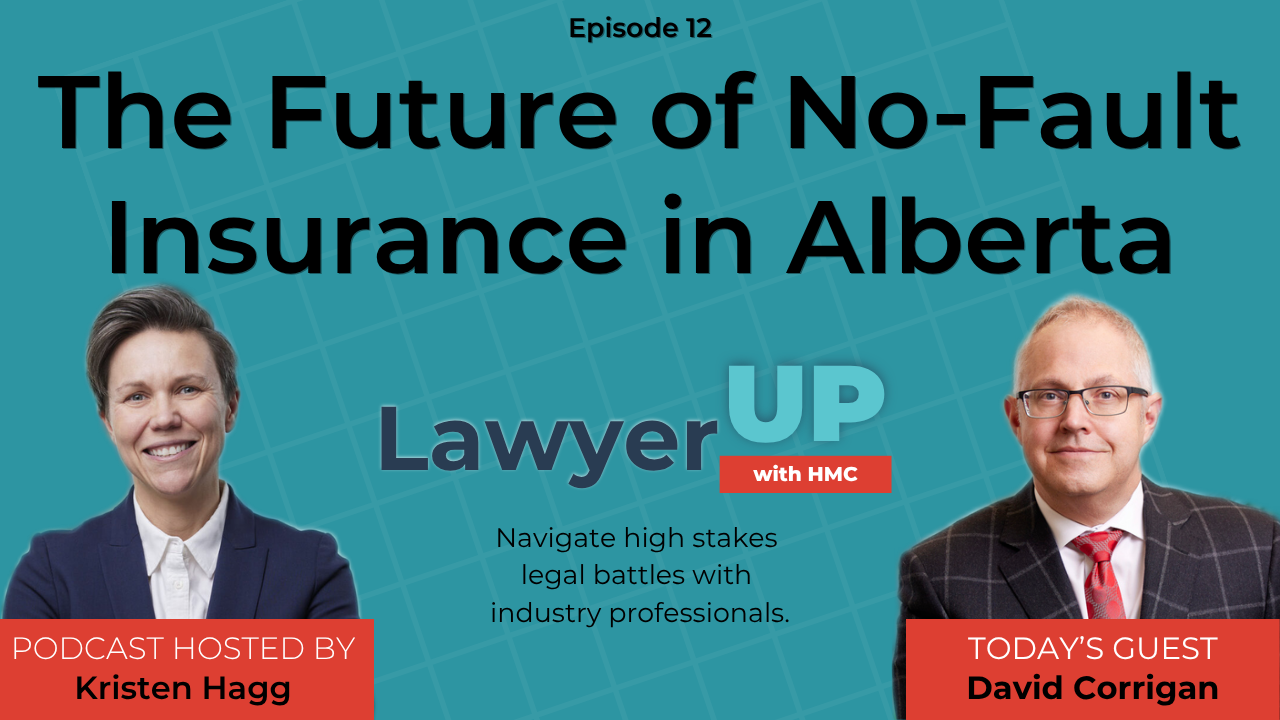
Medical Malpractice
Calgary Medical Malpractice Lawyers
Patients place a high degree of trust in medical practitioners. Injuries caused by medical malpractice can therefore be devastating not only to a patient’s physical health but also to their emotional well-being. Both victims of medical malpractice and their families can face significant financial hardship where long-term care and treatment are required.
At HMC Lawyers, our personal injury lawyers help patients secure the maximum compensation possible for injuries caused by a medical or health practitioner’s negligence. We advocate for our client’s needs and work to resolve their claim as efficiently as possible so they can focus on their recovery.
What is Medical Malpractice?
Medical malpractice occurs when a medical professional, such as a doctor, nurse, or dentist, injures a patient by failing to provide the necessary standard of care. Some examples of medical malpractice include:
- Birth injuries, such as cerebral palsy
- Injuries caused by a misdiagnosis or delayed diagnosis
- Surgical errors
- Harm caused by incorrect drug prescription or dosage
Proving Medical Malpractice
A patient must establish four factors to prove medical malpractice. An expert’s opinion is very often required as evidence to prove these factors.
1. The medical professional owed the patient a duty of care
The medical professional must have owed the patient a duty of care. Since the medical professional-patient relationship inherently creates a duty of care, it must be established that such a relationship existed.
2. The medical professional breached the standard of care
The law recognizes doctors and other medical professionals are fallible and may make mistakes. A breach of the standard of care, however, goes beyond minor errors. If the medical professional’s actions, or inaction, fall below the standard applied to a reasonable medical professional under similar conditions, they may have breached the standard of care.
The standard of care may also be breached when a medical professional provides treatment or carries out a procedure without the patient’s informed consent. Obtaining a patient’s informed consent requires the medical professional to make sure the patient fully understands the risks and benefits of, or alternatives to, a particular medical procedure.
3. The patient suffered an injury
The patient must have suffered an injury. Some examples include birth injuries to a parent or child, an adverse reaction to an incorrect dosage of medication or anesthesia, or even death.
4. The patient’s injury was caused by the malpractice
The patient’s injury must have been a result of the actions or inaction of the medical professional. There must have been a direct link between the treatment provided by the health care practitioner and the harm suffered by the patient.
Time Limitations for Filing a Medical Malpractice Claim
In most cases involving medical malpractice, a patient must file their claim within two years of the date they knew or ought to have known they were injured. Generally, if the victim is a minor, the limitation period does not begin to run until they reach the age of 18.
Determining the date someone legally “knew” or “ought to have known” of their injury can be complicated to prove and often requires the assistance of experienced legal counsel. Anyone who has suffered an injury caused by medical malpractice is encouraged to seek legal advice as soon as possible to preserve their claim and avoid missing the limitation period.
Compensation for a Medical Malpractice Injury
Patients who have suffered an injury from medical malpractice may be entitled to various damages (court-ordered monetary awards), including compensation for pain and suffering, punitive damages, and damages to cover the cost of past and/or ongoing expenses.
Calculating damages for a malpractice injury requires a detailed analysis. Upon reviewing the details of your injury, the personal injury team at HMC Lawyers will provide you with an assessment of your malpractice claim and an estimated range of potential damages.
Pecuniary Damages for Ongoing Expenses
Pecuniary damages are awarded to compensate injured patients for past and future costs caused by the malpractice injury. These include:
- Loss of past and future income
- Medical expenses and treatment costs
- Housekeeping and caregiving assistance
Non-Pecuniary or General Damages
General damages, otherwise known as non-pecuniary damages, compensate injured patients for harm that does not have an easily quantifiable monetary value. In many cases, these damages are awarded to compensate the patient for the pain and suffering they experienced due to the malpractice injury. This type of damage award is capped, with occasional adjustments for inflation.
Punitive Damages
Punitive damages are intended to punish the medical professional for failing to meet the standard of care and causing the injury. It should be noted that punitive damages are granted very sparingly by courts and are commonly reserved for the most egregious malpractice cases. Punitive damages for medical malpractice injuries are highly case-specific and depend on several legal and factual considerations.
Compensation Under the Fatal Accidents Act
When a patient dies from a medical malpractice injury, the executor of the patient’s estate may initiate a wrongful death claim under the Fatal Accidents Act. The Act provides compensation to the patient’s spouse, partner, parent, child, or siblings for the following costs:
- Expenses for the care of the deceased between time of injury and death
- Travel and accommodation expenses incurred for visiting the deceased between the time of injury and death
- Funeral and burial expenses
- Fees for grief counselling
- Damages for bereavement, including loss of guidance, care and companionship
While the Fatal Accidents Act does not mention punitive damages, the Alberta Court of Appeal has stated punitive damages may be available in extreme cases where there is evidence of malicious intent.
Contact the Personal Injury Lawyers at HMC Lawyers in Calgary for Advice on Medical Malpractice Claims
At HMC Lawyers, we assist patients in Calgary and across Alberta who have suffered an injury due to medical malpractice. Our experienced personal injury lawyers help patients obtain the maximum compensation possible for their injuries and handle every case with compassion and dedication. To find out how we can help you with your personal injury matter, contact us at 1-800-480-3534 or reach out online.



